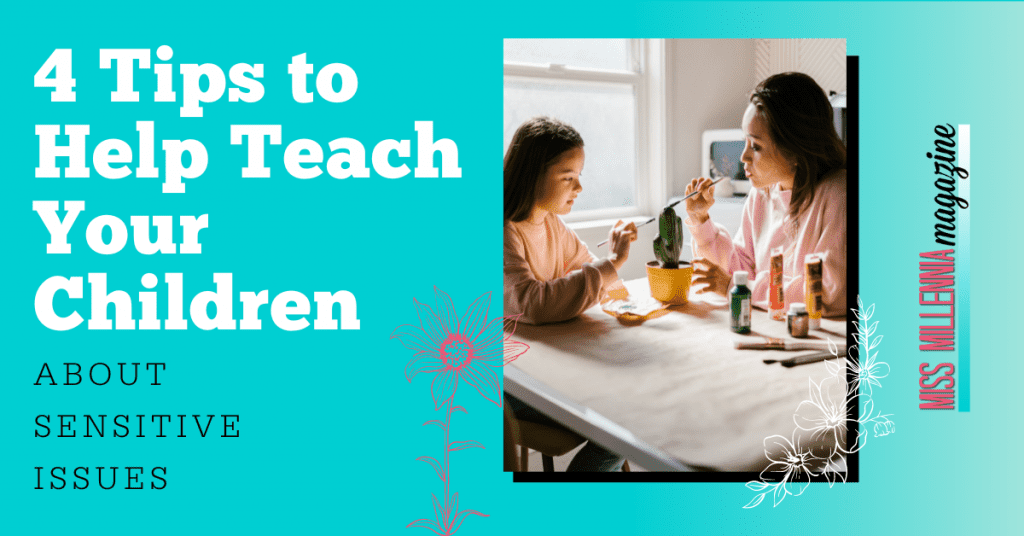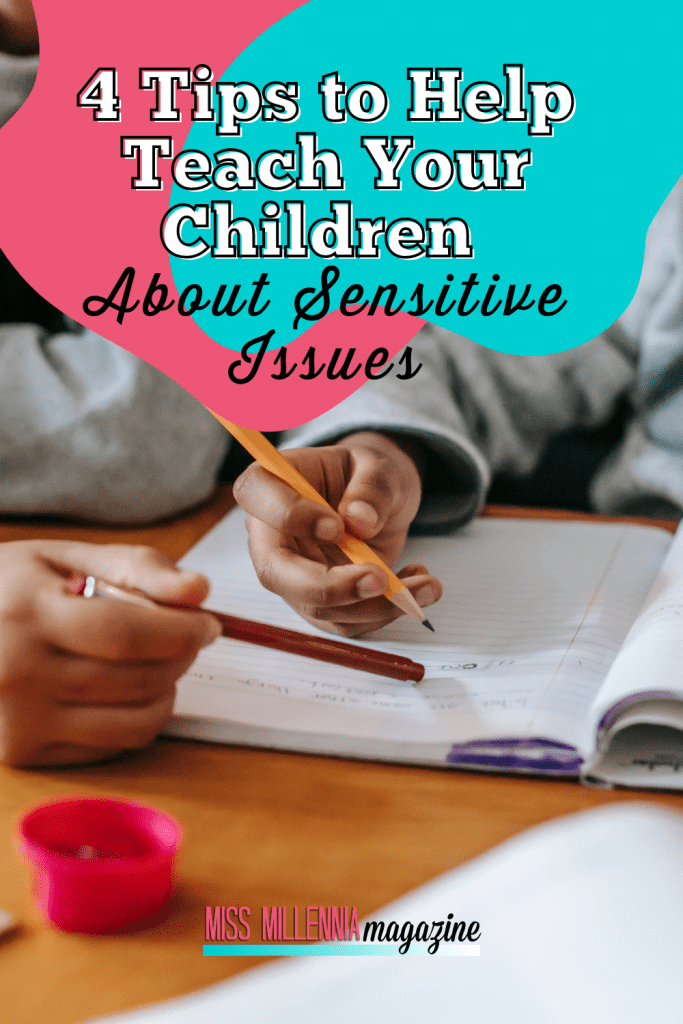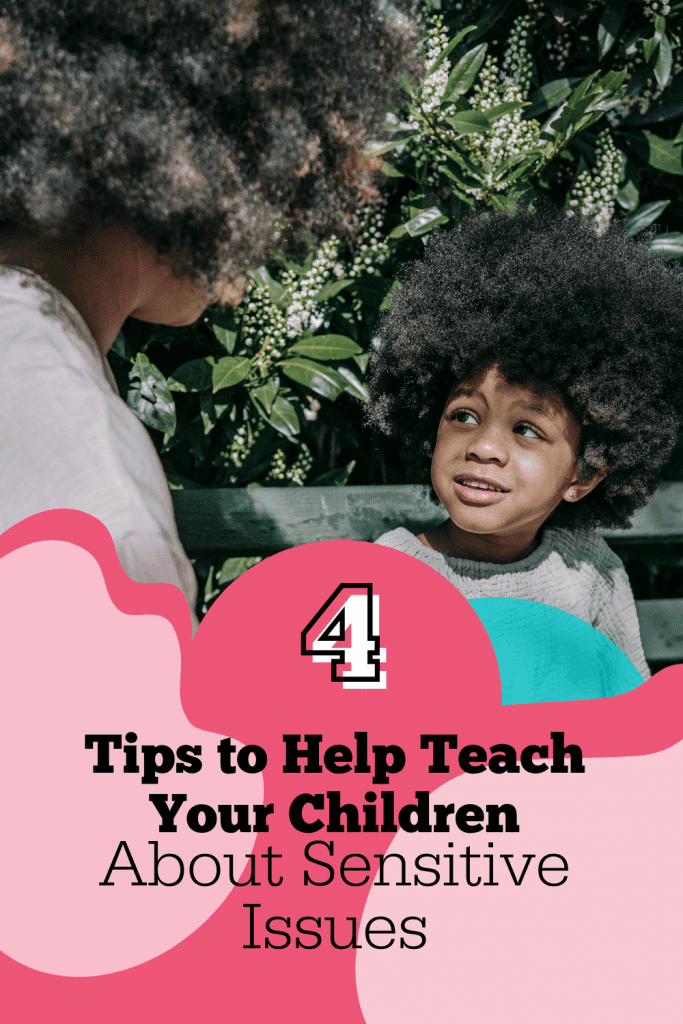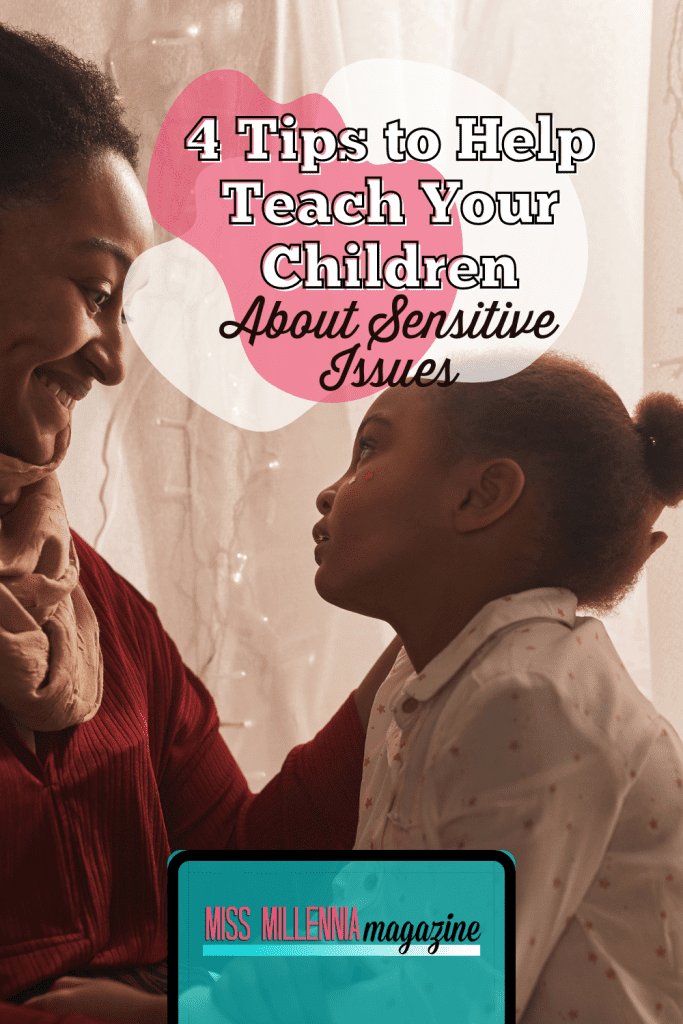4 Tips to Help Teach Your Children About Sensitive Issues

Cultural and sensitive issues have come more and more to the forefront in recent years. They’re something that needs to be discussed, with children of appropriate ages being no exception to this. You’ll need to speak with them about it, but you might not know how to teach your children about sensitive issues.
With how complicated these can be, it’s easy to see why that’s the case, especially with anxiety and similar issues. It doesn’t need to be as overwhelming as you’d think, but you’ll need to put effort into making sure it’s done right. Using a few tips can be helpful for this, especially if you’re worried about your children learning about the issues appropriately.
Four tips can be recommended with this, as they’ll make sure you’re giving them appropriate information while making your children comfortable during the conversation.
1. Create A Safe Space
Before you start teaching your children about sensitive issues, you’ll need to make them feel comfortable and safe. Remind them that they’re safe and that you’re there to help them understand things and come to terms with the issues. By taking this step first, you let them feel as though they’re not being accused of something or made to feel uneasy.

To create this safe space, you can:
- Hear your children out
- Ask what they think
- Encourage questions
- Not being judgmental
Taking this approach from the start makes sure your child is open to and engaged with the conversation. They’ll be more receptive to the information you’re giving them.
2. Use The Right Resources
You don’t have to teach your children about the issues by yourself. You’ll have plenty of resources at your disposal, as long as you know where to look. If you’re teaching them about trans issues, for example, you can TikTok transgender women and use their accounts as aids during the conversation.

Not only does this make things easier, but it makes sure your children are getting accurate and unbiased information. It helps your children understand the issue better while getting a clearer picture of what’s actually happening.
It’ll also avoid you from getting anything wrong, which could end up confusing your children. Use as many of these aids as you can.
3. Give Them Hope
Some sensitive issues can seem as though the world’s a scary place and that there’s no hope left. That isn’t the case. While some issues need a lot of work to improve, that doesn’t mean they can’t improve. Adults can see the nuances of this, but that can be difficult for children to understand.

When you’re teaching your children about sensitive issues, make sure to give them hope. Show them that things can be made better, and highlight how they can be a part of positive change. You can find countless examples of positivity and improvement online about various issues, so it could be worth showing your child these.
By giving them hope, you make the issue itself – and the world in general – seem much less scary.
4. Stay Unbiased
One of the bigger mistakes you could make when teaching your children about sensitive issues is giving them your opinion rather than the facts. It’s especially common when you’re talking to them about important issues, but it’s something you should avoid doing.

Staying as unbiased as possible lets your children make up their own minds about the issue. They’ll likely be curious about what you’re telling them, so they’ll have quite a few questions. Answer these with factual information rather than how you feel about it.
The right resources, as mentioned above, can be extremely helpful with this. Set aside your feelings about the topic and give your children the facts, and only the facts. Let them be curious and make up their own mind about it.
Wrapping Up
If you don’t know how to teach your children about sensitive issues, you could worry about it being overwhelming. You might even think you’ll teach them the wrong information or even give them an inappropriate impression about the issue. There are ways to make sure that doesn’t happen, and using the right tips and strategies is vital to do this.
Staying unbiased, using the right resources, creating a safe space, and giving them hope is some of the more notable. While you’ll have to be careful with how you go about this and make sure your children are at an appropriate age to discuss the issue, you shouldn’t have a problem outside of this.







